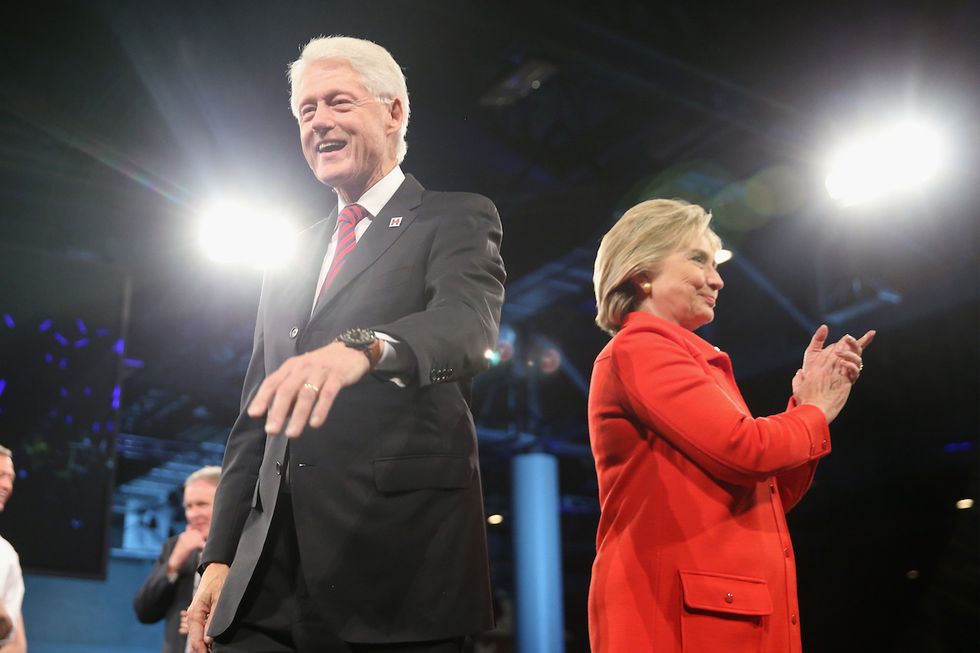
Scott Olson/Getty Images

Twenty years after President Bill Clinton signed legislation to reform the U.S. welfare system, the data doesn't yet show that America's neediest families are any better off.
The Personal Responsibility and Work Opportunity Reconciliation Act of 1996, a comprehensive welfare reform package, became law on Aug. 22, 1996. At the time, Clinton pointed to the act as a fulfillment of his campaign promise to "end welfare as we have come to know it."
The new law created the Temporary Assistance for Needy Families, or TANF program, which replaced several welfare programs in place at the time.
But many needy families, particularly in the South, still do not receive TANF benefits in 2016, according to the Center on Budget and Policy Priorities.
And since 2000, the gulf between families with children in poverty and families who receive TANF aid has grown steadily wider. In 2014, only about 23 percent of U.S. families in poverty were getting benefits through the program.
Current poverty rates under TANF caused CBPP, a nonpartisan research and policy institute, to conclude that the block grant is "overdue for reform":
Under TANF, the number of children living in deep poverty — with incomes below half the poverty line, using a comprehensive poverty measure — has risen significantly, placing large numbers of children at risk for long-term negative academic, employment, and health outcomes. The share of children below half of the poverty line rose from 2.1 percent to 3.0 percent between 1995 and 2005, and the number of children in deep poverty rose from 1.5 million to 2.2 million.
Former first lady Hillary Clinton, the Democratic nominee in the 2016 race, has had to answer for her role in the package's passage throughout her own campaign. Her Democratic primary challenger, Vermont Sen. Bernie Sanders, particularly sought to tie her to the mixed results of her husband's reform bill.
In an interview in April, Clinton argued that her husband's welfare-reform efforts were stymied by his successor, President George W. Bush, and other Republicans.
But regardless of where the blame lies, the program now needs to be retooled, she added.
"The Bush Administration and Republican governors were really not interested in continuing what had been the positive framework for welfare reform," she said. "Now we have to take a hard look at it again, especially after the Great Recession and the five-year limit, but also the really unfair way that a lot of states have defined education benefits and other administrative changes that they have imposed on top of that framework."
—
Follow the author of this story on Twitter and Facebook:
[facebook //www.facebook.com/plugins/like.php?href=